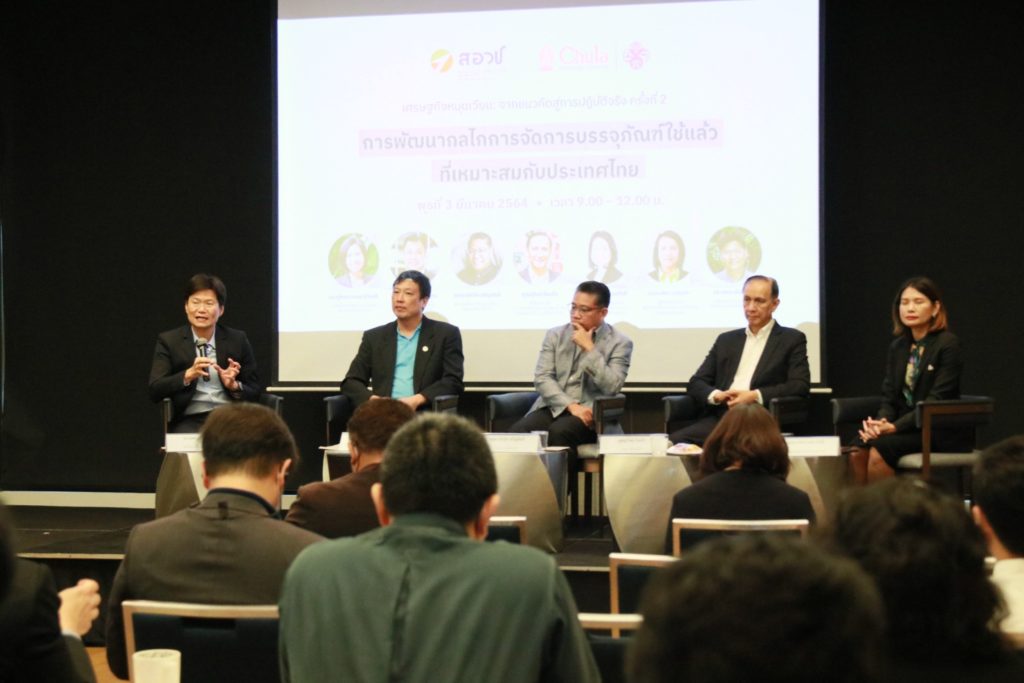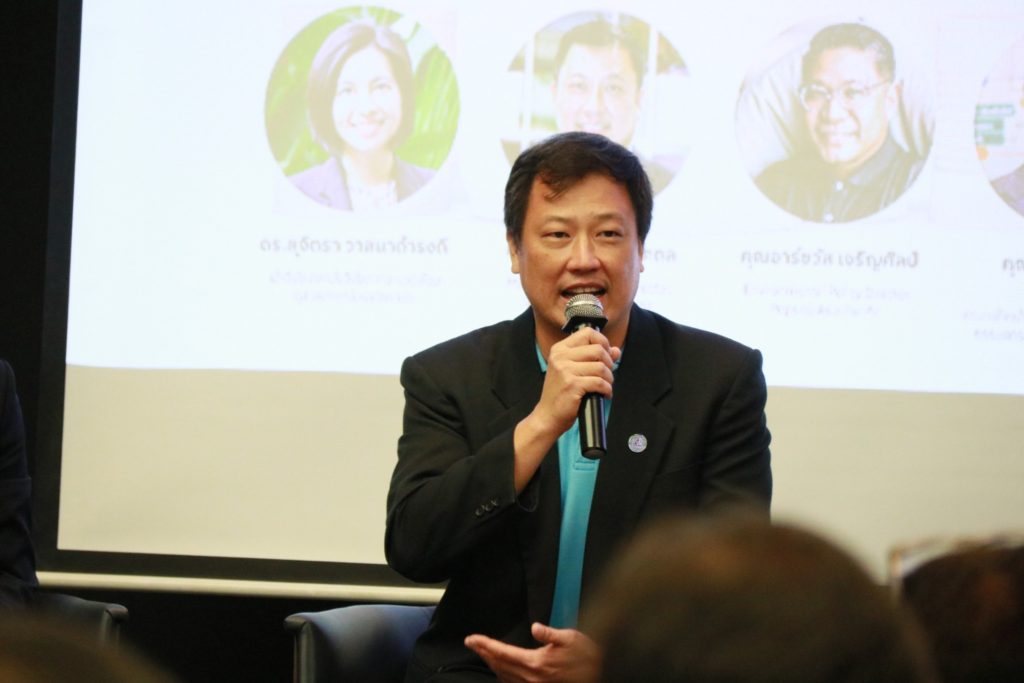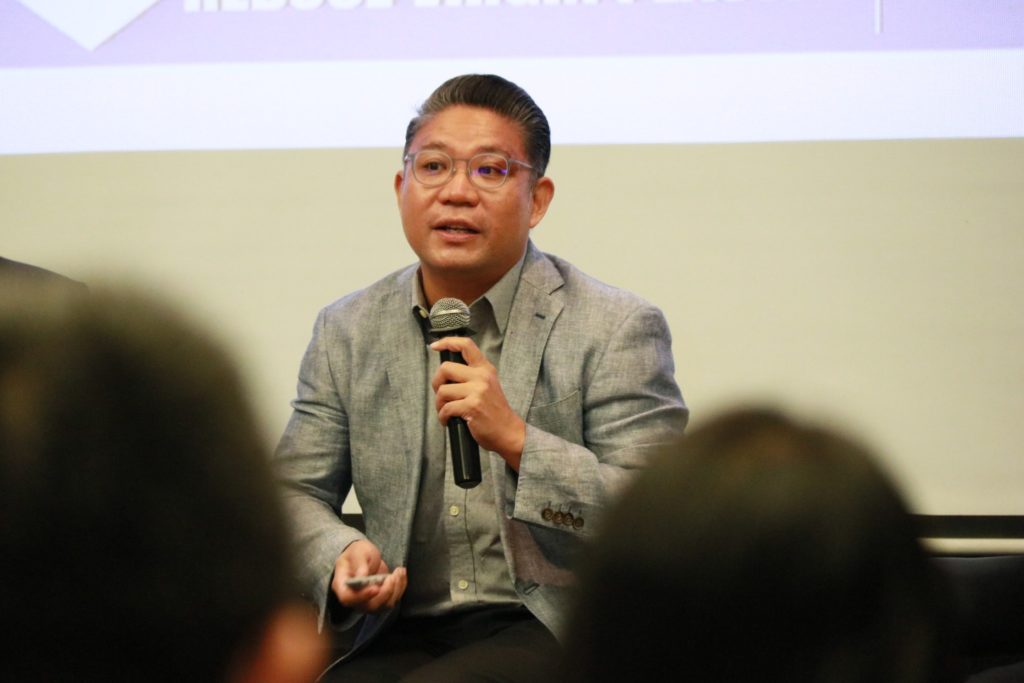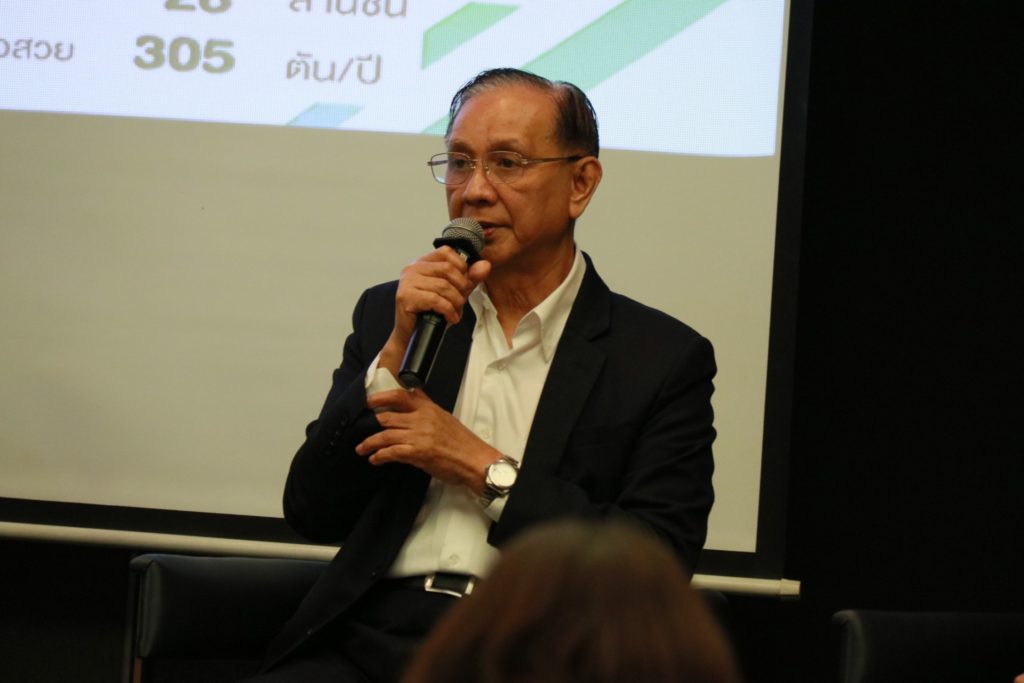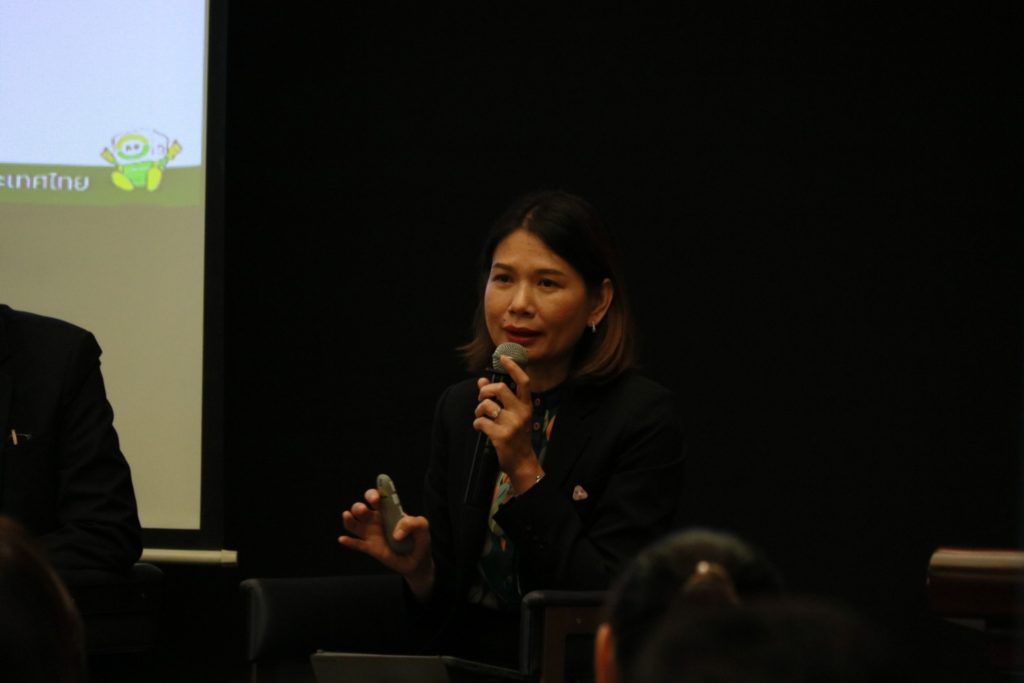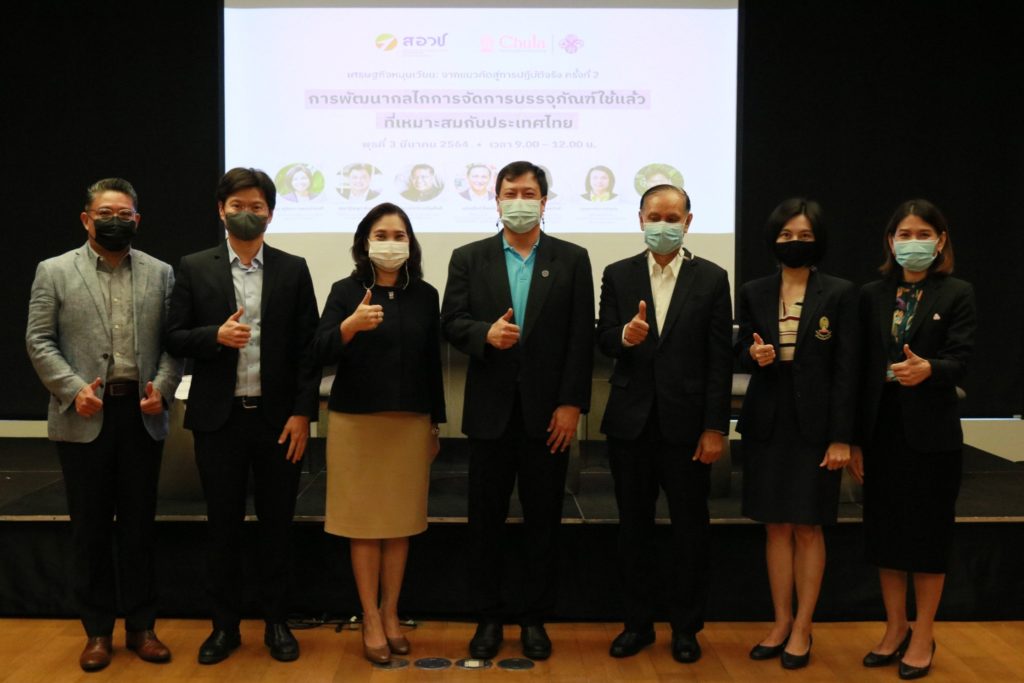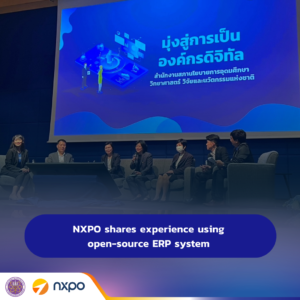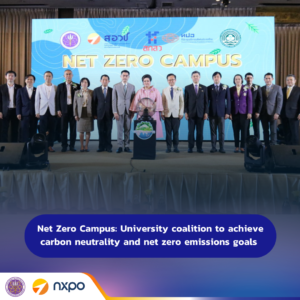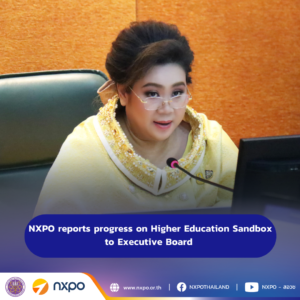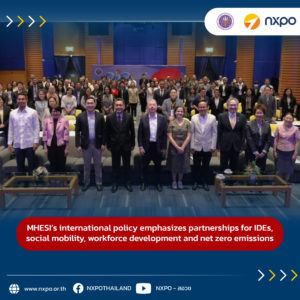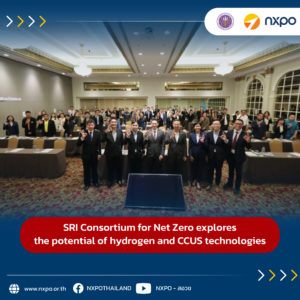Co-organized by NXPO and Chulalongkorn University, the 2nd circular economy (CE) seminar took place on 3 March 2021 with the focus on management of packaging waste. NXPO Vice President Dr. Kanchana Wanichkorn gave opening remarks, whereas representatives of leading enterprises and government agencies participated in the discussion.
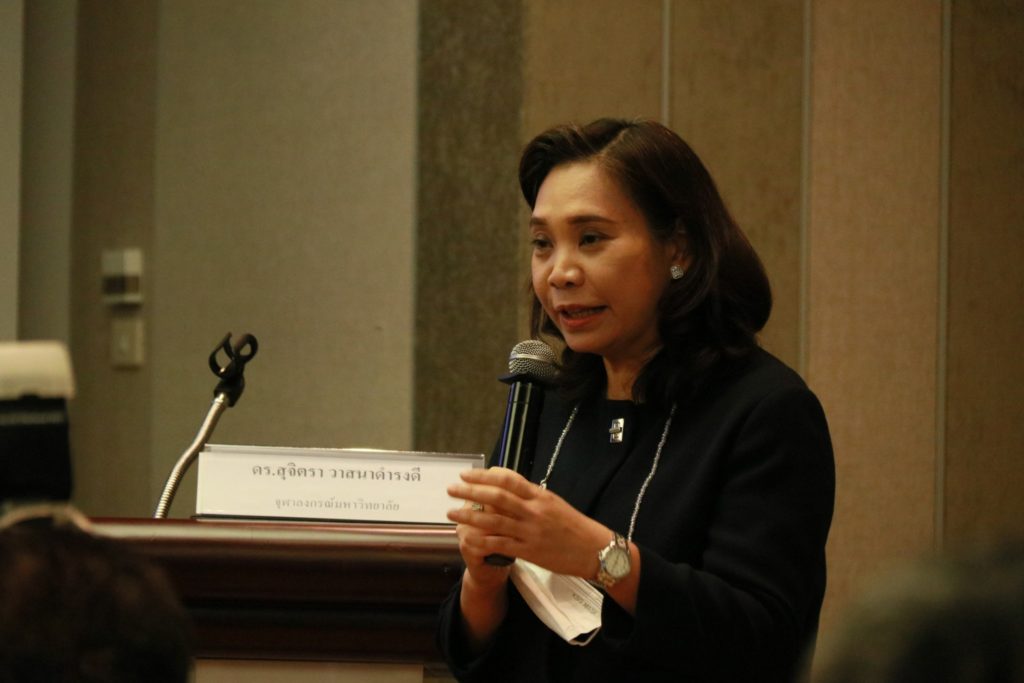
Dr. Kanchana remarked that the government had declared Bio-Circular-Green economy (BCG) the national agenda and established the National BCG Management Committee with the Prime Minister serving as the chairman. The BCG Implementation Committee has also been set up with Minister of Higher Education, Science, Research and Innovation (MHESI) as chairman and NXPO President serving as a member. NXPO President also serves on the BCG sub committee on CE. In the CE white paper drafted by NXPO, four anchor programs are proposed in order to develop a dynamic ecosystem for CE: 1) CE Champion for supporting new initiatives for high-impact actions, 2) CE Platform for creating and offering solution platforms for industry, 3) CE R&D for financing R&D and 4) CE Citizen for raising awareness and expand CE market.
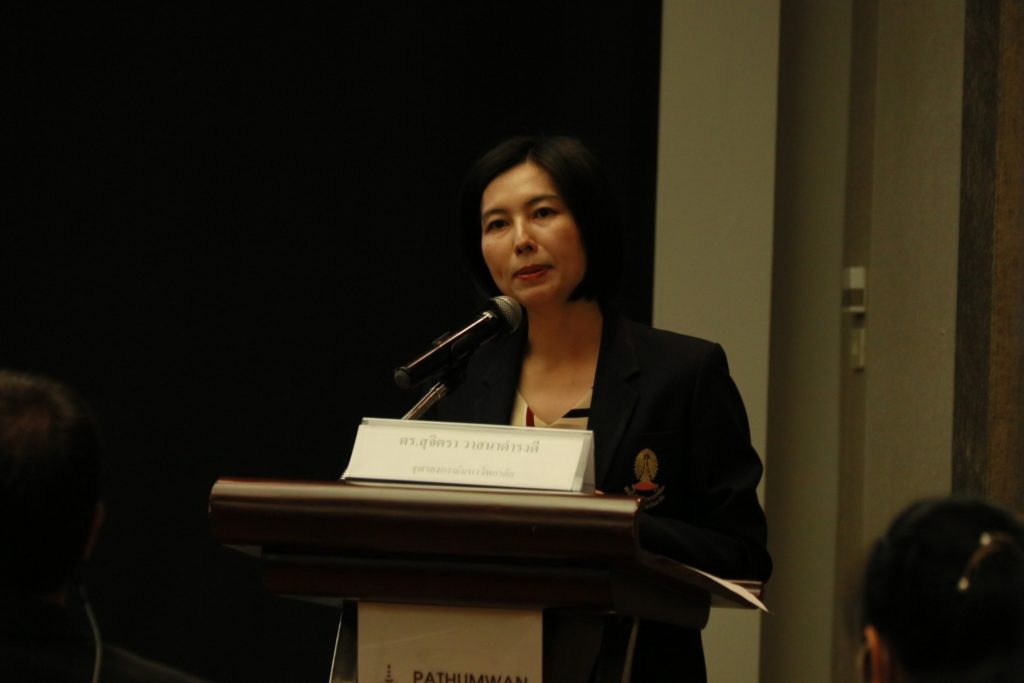
Dr. Sujitra Vassanadumrongdee, researcher of Chulalongkorn Environmental Research Institute, pointed out the ineffective waste management system in Thailand, resulting in large amount of waste causing negative environmental consequences. The pandemic has driven consumers to food delivery services, adding more food packaging waste to the system. Food packaging waste from food delivery services is expected to reach 6 billion pieces/year within 5 years. Legislation and waste management system in Thailand still follow a linear economy model relying on collection, transport and treatment of waste, while lacking obligations on waste segregation, recycling and etc. that will encourage CE. Dr. Sujitra suggested some measures that can be introduced in Thailand to promote CE including 3Rs (reduce, reuse & recycle), circular concept, polluter pays principle and Extended Producer Responsibility (EPR).
Representatives from private companies generally agreed that waste management had an impact on overall business and economy system. SMEs and large enterprises must get involved in the waste management value chain, viewing waste as potential raw material. A number of enterprises have adopted circularity, implementing the 3Rs principle to reduce food packaging waste. Some companies set a clear policy such as using only bio-based or 100% recycled packaging, 35% reduction of packaging containing new plastic materials by 2025 and replacing plastic food packaging with recyclable or biodegradable containers.
Representative from the Pollution Control Department informed the audience that the government’s plastic waste management roadmap 2018-2030 aimed at 1) reducing and eliminating plastic use by replacing it with eco-friendly materials, 2) reusing 100% of plastic waste by 2030. As for CE in packaging management, the government will take charge in developing policy and measures to support eco-design and incentivize waste segregation and recycling, and issuing some regulations to enable 3Rs (reduce, reuse & recycle), polluter pays principle, Extended Producer Responsibility (EPR), corporate CSR and the use of Life Cycle Approach.

